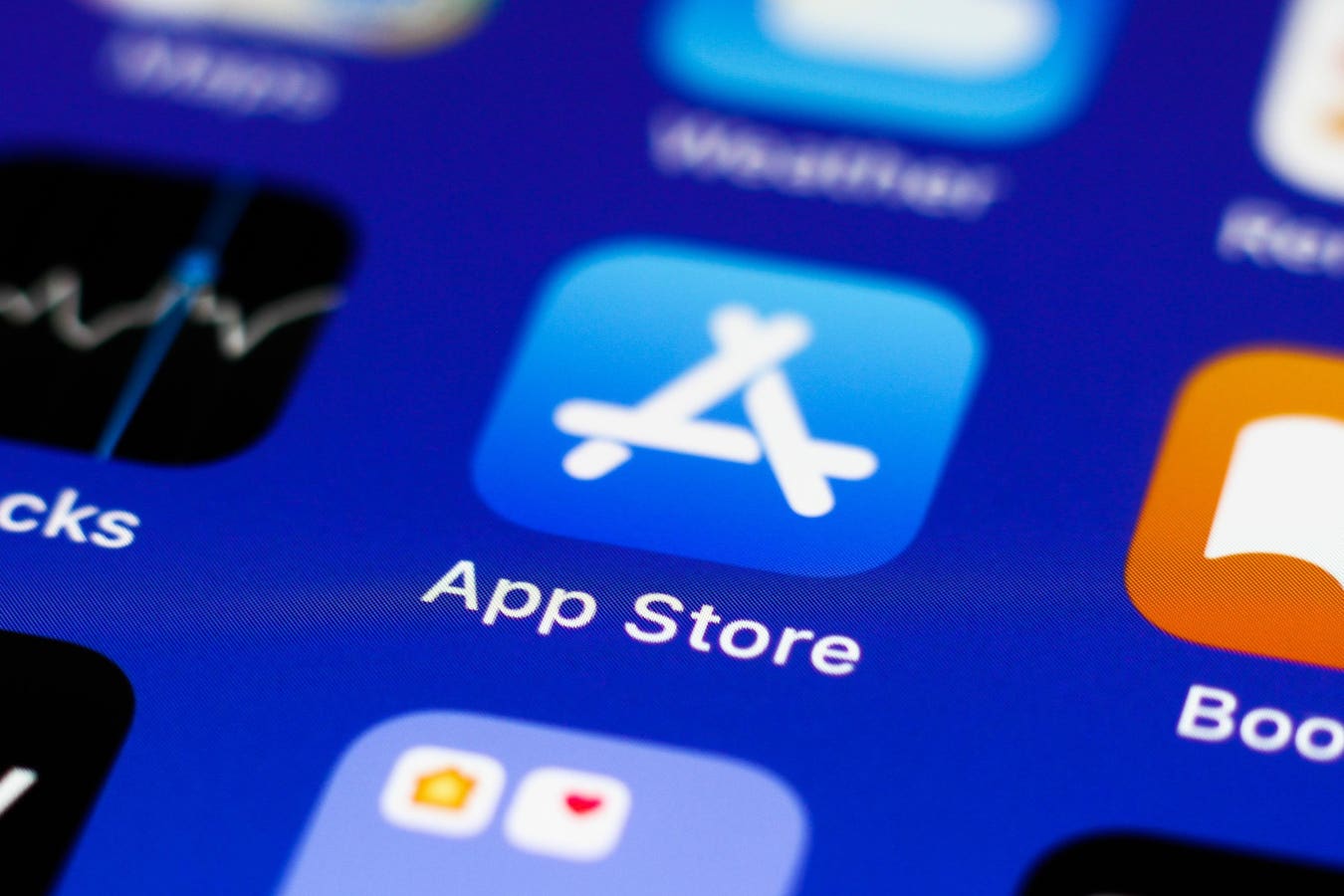App Store icon displayed on a phone screen is seen in this illustration photo taken in Krakow, … [+]
The app economy is quickly coming to an end.
A sensational sentiment, perhaps, but let’s go ahead play this scenario out anyway.
For the past year I have closely tracked how much of the enterprise software and SaaS services we use will be deprecated to data services or databases. AI tools and agents will remove abstraction layers and enable a single-pane-of-glass-type use case where we can leverage multi-modal generative tools to build a real time UI for a specific query or use case. (Think search with Gen AI for business.)
Now, shift your thinking to the app experience most of us have today when we interact with our mobile devices and tablets. Many of us use dozens, if not hundreds, of applications for everything from banking and travel to work and games.
To make it all work, we organize apps in folders, and we use Face ID to give us easy login access. In the process, we permit these apps unadulterated access to our data to ensure experiences are good — often with little regard for the way the data is utilized (a topic for another day). App builders have built apps for better UI/UX and connecting to data services such as ride share, hotel and flights, food, and investment services.
Imagine, then, a future AI-powered device with a powerful security operations center with the GPU/NPU and amazing connectivity that allows digital assistants and agents to sit at the operating system level. You can simply talk to your digital assistant.
In my opinion, this is where Apple Intelligence has a big opportunity, in which Siri (or whatever it is ultimately named) understands your request, sifts through apps, and cross references those that deliver the best experience. There will be a similar “super-agent” that will reside on Android as well.
The Ultimate Trip (App)
As of now, if you want to book a trip you may use an aggregator service like Google Flights or an app like Expedia. These apps have access to a broad set of data and a user interface that makes it easy to book a flight or trip. As users, we are limited to the data services of that app and/or a group of apps that we may use to compare to one another (like Google Flights or Lending Tree).
In the future, we will be able to use an OS-level digital assistant that is multi-modal (text, speech) for our needs. Imagine what it would be capable of doing: For instance, I could book a flight to San Francisco, a hotel until Thursday, a driver to pick me up when I arrive, and a reservation for a dinner meeting on Wednesday – all with the ability to confirm meetings and other tasks.
The assistant + agent technology will be able to navigate your preferences like which airline you prefer to fly based upon status, travel budget, and seat preference and availability. It will be able to complete the task with secure payment. It can choose your favorite ride share or car delivery service app, and preferred hotel based on room type, amenities, services and location based upon your meetings.
The same principle applies to restaurant bookings and of course meeting confirmations will be easy, but always useful to be sure you are traveling for good reasons. Furthermore, it can leverage/find data and services that you don’t already have an app for, as well as to find better prices for shopping, travel, or even suggesting a better dinner location based upon the preferences of the person you are meeting.
Why do we need the apps? At least we know it. Are apps deprecated data services and user interfaces that can be generated in real time? Do the apps go away, or do they become more of a data layer like our business apps are likely to become? My preference isn’t the app. It is the experience the app creates. Hail my ride, prepare my coffee, show me my account balance.
Enterprise Apps: First to Go?
And we have all heard from some time that the enterprise app layer is changing. We have the likes of Microsoft, Salesforce, ServiceNow, Oracle, and SAP to name a few all battling to be the single pane of glass for their customers to drive productivity and efficiency. Copilots and Assistants expanding into multi-threaded reasoning agents that can navigate and be the arbiter across a plethora of perhaps soon to be deprecated data services.
Knowing that business applications tend to be harder to utilize with often antiquated user experiences—this space feels like a bastion of opportunity for disruption where instead of navigating between dozens of applications like CRM, ERP, HCM, SCM, you are dealing with and providing a near real time AI generated UX that will be continuously adapted and optimized based on your preferences.
The UI/UX will be an abstraction of the combined open data ecosystem and the ability for us to articulate that need. But we aren’t far away from a multi-modal future where we simply communicate what we need and let the agents do the work.
Apps become a figment of the past. The only question is when.


